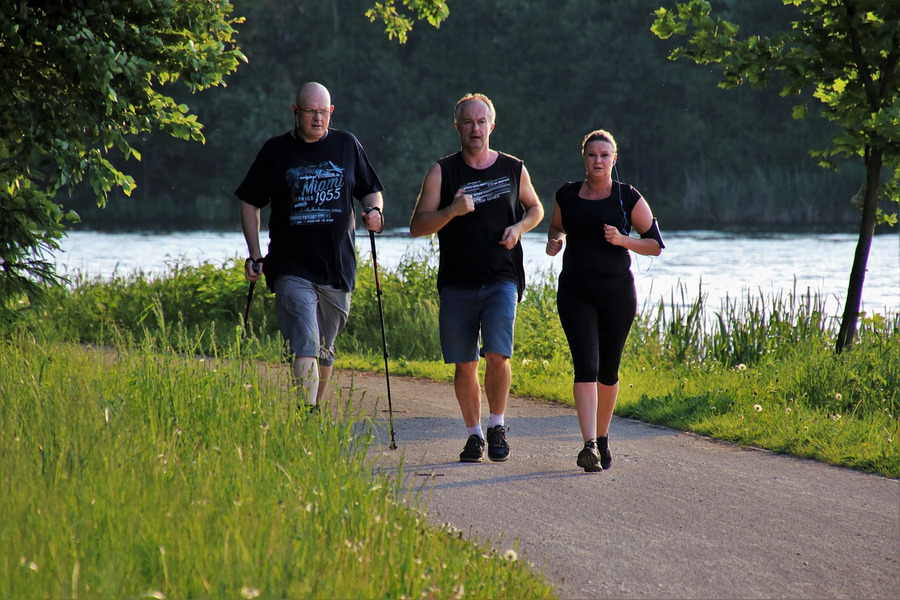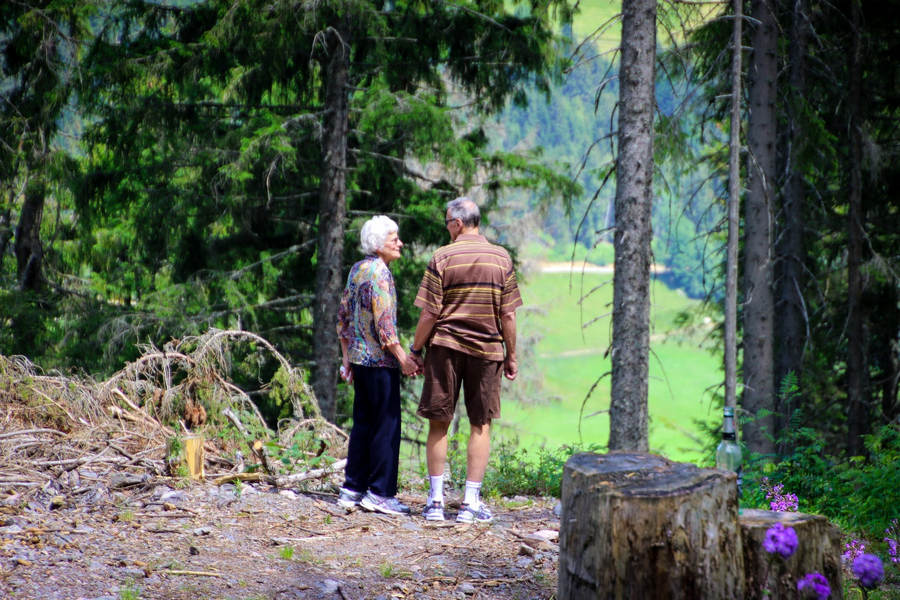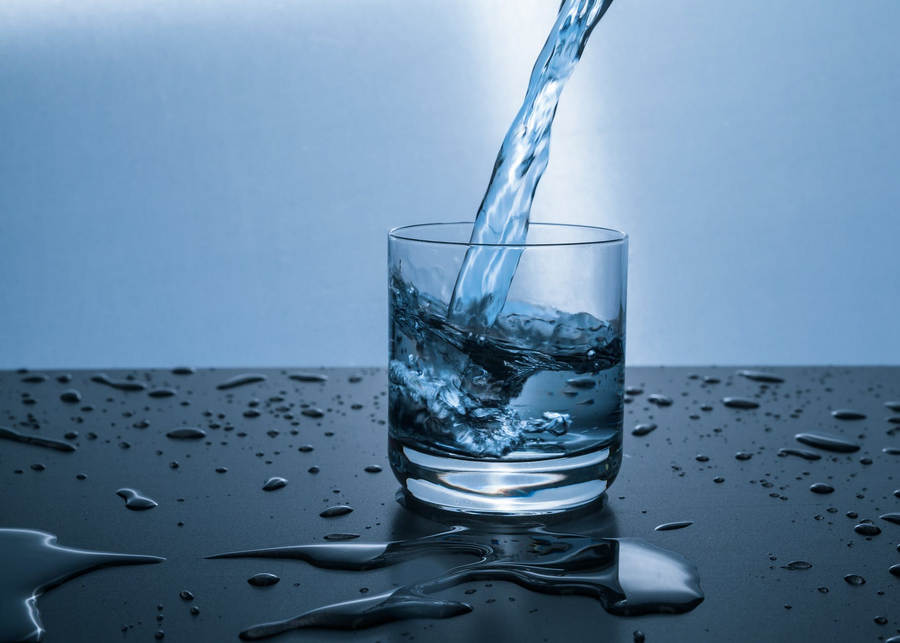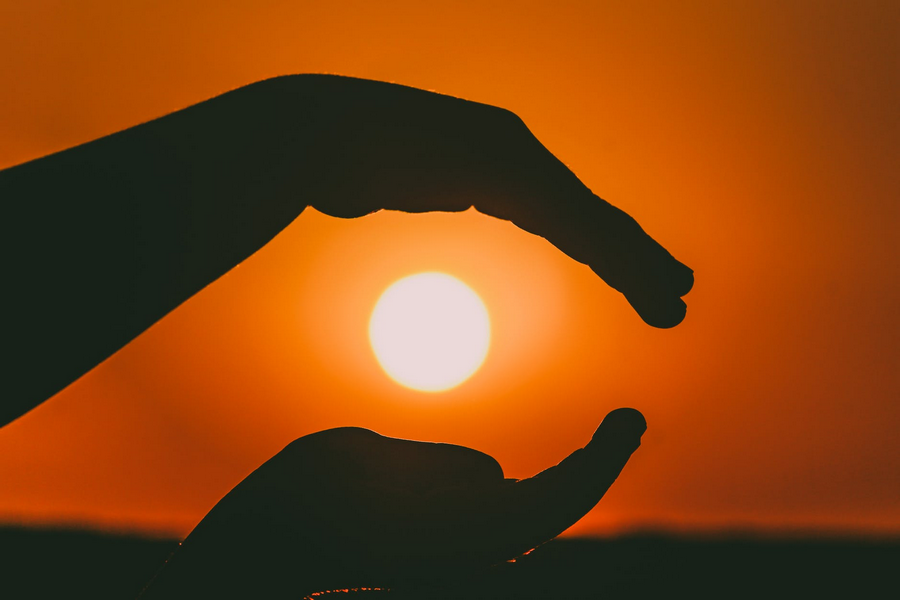Heat stress in seniors is real.
Heat emergencies and heat-related illnesses can happen to any age group, but seniors are more susceptible to their decreased ability to self-regulate body temperature.
The summer heat can bring on several health risks for seniors with Alzheimer’s Disease, including dehydration and heat exhaustion. This is because the body becomes more sensitive to hot temperatures during the disease process as it tries to cope with changes in memory and cognition.
Family members and other caregivers must take steps now to help seniors stay cool during the summer while minimizing the potential for injury.
This blog post will discuss heat stress in seniors, three types of heat emergencies, and what you should do if a senior is experiencing this type of emergency.

Learning More About Heat Stress in Seniors
One of the hidden dangers for our elders is the brutal summer heat.
When we are young, the heat does not affect us as much. This is because we are usually able to sweat effectively and recognize when we are overheating or dehydrated. However, as we age, our circulation becomes poorer, and other symptoms of age can compound the risk of overheating.
Medications, heart disease, obesity, and dementia are only a few common ailments that catalyze the risk for overheating in the senior community.
In the summer months, when temperatures are high, we all need to be aware of our surroundings and take care of ourselves and others who may be more vulnerable than us. Heat emergencies can range from mild, like heat cramps to heat exhaustion and, finally, heat stroke when the body’s internal temperature reads 104ºF.
This is especially dangerous for seniors because it becomes increasingly difficult for seniors to realize why they are uncomfortable.
Extreme heat in the elderly can cause confusion, dizziness, muscle cramps, headaches, and even loss of consciousness. As a result, it is not uncommon for overheated elders to wander away from their homes or the watchful eye of their caregivers in an attempt to aid their discomfort.

What are the Symptoms of Heat Stress in Seniors?
Heat Cramps – Heat cramps are the mildest form of heat illness. Muscle cramps in the legs, arms, and abdomen can start after several hours of exposure to hot, humid conditions.
Symptoms are caused by dehydration as well as low sodium levels in the blood.
These symptoms include muscle pains; nausea or vomiting; thirst; weakness; numbness, tingling sensations, headache.
Signs: Rapid breathing, unusually high heart rate, flushed skin (often accompanied by a pale appearance), dilation of pupils, dizziness, or fainting.
Heat Exhaustion – Heat exhaustion is a heat illness caused by heat and the loss of water in the body through sweating. It occurs when a heat-exposed person no longer has enough circulating fluid volume to compensate for continued heat exposure.
Heat exhaustion results if heat exposure overwhelms your ability to lose heat, causing you not to be able to cool off fast enough. Your heart pumps more quickly, and your blood pressure rises, trying to deliver more blood to help cool muscles and heat-sensitive organs like the brain, heart, lungs, or kidneys.
The symptoms are similar to heat cramps, but on top, there are nausea, vomiting, excessive sweating, and pale skin caused by low levels of salt in the body (hyponatremia).
Signs: Rapid breathing; shallow rapid pulse;
Heatstroke – Heatstroke is an advanced heat-related illness. Heatstroke occurs when you fail to sweat (anhidrosis), and your body can no longer effectively cool itself in hot temperatures because heat is not adequately dissipated through the skin. Hence, body temperature rises to dangerous levels.
Heat exhaustion symptoms like nausea, vomiting, excessive sweating, or pale skin occur, but heatstroke may also cause fainting or seizures.
Signs: Rapid breathing; fast and strong pulse; or if you have a fever of 104 degrees (40 degrees Celsius), see a doctor urgently.

12 Ways to Prevent Heat Stress in Seniors and Stay Hydrated
Heat can be dangerous for any age, but because seniors tend to have difficulty recognizing the symptoms of overheating, it is of utmost importance that we watch over our elders during the hot summer months.
When caring for seniors in the summer, a few more steps to consider before having a day in the sun, but using keen discretion and various tips to cool them off should allow for the summer activities to commence!
1. Stay Hydrated by Drinking Lots of Cold Liquids – Drink plenty of water regularly and avoid beverages that may dehydrate you. These include alcohol, caffeinated drinks, and iced tea or coffee.
Even heat-stressed people heavily sweating may soon suffer heatstroke if they don’t drink enough water or other liquids. Conversely, if you remain adequately hydrated, your body can better withstand heat stress and help prevent heat exhaustion.
2. Eat Cooling Foods – Avoid heat-producing food such as spicy dishes with hot peppers or cheese sauces, meats cooked at temperatures above 375 F (190 C), fried foods, and heavy desserts such as cakes, creamy frostings, and chocolate syrup.
Instead, choose cool items like fresh salads, chilled fruit juices, cold soups, and frozen fruit cups or sherbets to keep heat levels down in your body rather than heat up your day’s calorie intake too much!
3. Take a Cooler to Outings – especially if you will be outside for several hours. Take along an insulated cooler packed with frozen bottles of water, juice, and sports drinks rather than cans or hot coffee. Remember to offer the same cool refreshments to your heat-stressed friends and family too!
4. Dress Appropriately – Make sure to dress your loved one appropriately for the weather, wearing light, loose clothing not to trap access heat. Dress in layers when you go outdoors on a hot day.
Be sure you have plenty of light, easily removable clothes for outdoor activities so that heat stress won’t set in during your outing. Take off those layers as soon as you feel hot, so heat doesn’t build up under them and make matters worse.
5. Use Sunscreen – When outside, it is crucial to apply and reapply sunscreen as elders burn easier, and this can inhibit the body’s ability to regulate its temperature. Ensure that your loved ones are wearing sunscreen with an SPF of 15 whenever they are outdoors.
Remember to use plenty of waterproof sunscreen on heat-sensitive body parts, such as the ears, nose, and lips, at all times in summer heat.
While being outside is suitable for everyone, try to encourage your elders to avoid direct sun exposure, especially during the hottest times of the day.
6. Get an Early Start – In heat-stressed states, heat illness often develops when you’re already overheated and doing more physical activity in the heat than your body is accustomed to. Pace yourself. If you start slowly and gradually increase your pace or workload, you can better tolerate heat stress and heat exhaustion in hot weather.
7. Use the Right Hat – Wear a wide-brimmed hat that shades your face and neck as well as the top of your head to protect against heat stress. In some areas where it’s sweltering and sunny, hats are worn not just for style but also for protection from skin cancer caused by intense sunlight exposure on uncovered skin tissues.
8. Work at the Right Hours – If you must work outside in hot weather, schedule outdoor work during cooler parts of the day. This means you should start very early in the morning, or later in the evening. The ideal times for seniors to get some fresh air are early morning and as the sun sets.
It is also essential to have your loved ones stay in a shaded area if they are outside for extended periods.
9. Try Sports Drinks – Drink plenty of fluids, especially sports drinks that contain electrolytes. Sports drinks replace essential salts lost in sweat that help maintain body heat and regulate the body’s balance of fluids. If you have diabetes or have high blood pressure, make sure your doctor approves before using these drinks. The drinks also contain high amounts of sugar and salt, which people with diabetes must be careful of, and people with high blood pressure can cause a severe spike in their blood pressure.
10. Use Cool Hydrotherapy – If heat exhaustion is the problem for seniors, they should dip their bodies in cool water to help lower body temperature naturally. For cases where your loved one is overheated but not in an emergent situation, try drawing a tepid bath, shower, or running a lukewarm washcloth over their skin to cool them gently.
If unavailable, allow your elder loved ones to go swimming. After heat exhaustion has passed (normal sweating resumes), you can continue your normal activities as long as you don’t become too hot.
11. Keep Their Homes Nice and Cool – Similarly, make sure your loved one’s home is adequately air-conditioned or ventilated to keep them safe.
In homes that don’t have air conditioning, take your loved one to a well-cooled public place such as a mall, library, or senior center. Even two or three hours in air conditioning a day can drastically reduce heat-induced medical emergencies.
12. Don’t Overdo It – While heat stress is an issue in seniors, it’s important not to over-exert oneself no matter what one’s age! This only causes heat stress. Instead, do things at a pace that you can handle and allows for continuous cooling (not too cold or hot).
If possible, get enough sleep beforehand so that you won’t be fatigued during the daytime heat.

Heat Stress in Seniors – Conclusion
Heat stress is severe and can take a toll on your body. The consequences of heat stress in seniors can be life-threatening, so it’s essential to understand the symptoms and prevent them. If your elderly loved one is experiencing a heat stroke, contact emergency medical assistance as soon as possible.
For more tips or advice from our team of experts specializing in assisted living and memory care, call 303.956.9037






